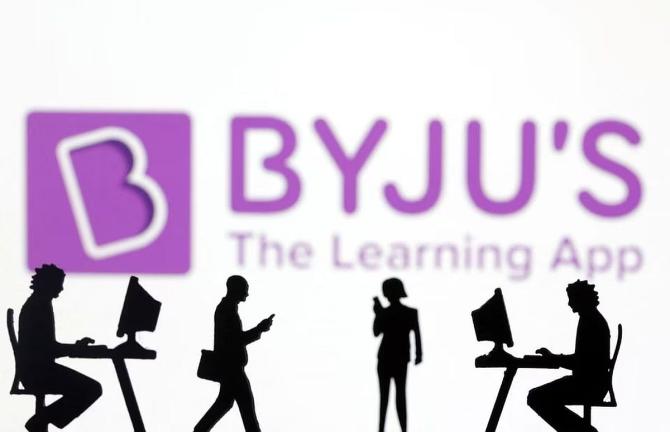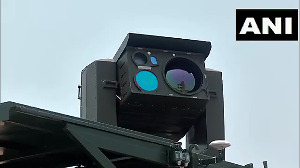In a significant verdict, the Supreme Court on Wednesday set aside the National Company Law Appellate Tribunal's (NCLAT) verdict that had stopped insolvency proceedings against embattled ed-tech firm Byju's.

A bench of Chief Justice D Y Chandrachud, and Justices J B Pardiwala and Manoj Misra also reversed the order of the NCLAT approving Byju's Rs 158.9 crore dues settlement with the Board of Control for Cricket in India (BCCI) and directed the cricket board to deposit the settlement amount of Rs 158.9 crore with a committee of creditors.
The bench held that the US firm Glas Trust Company LLC, being the creditor, has the locus to intervene in matters related to the corporate insolvency proceedings at NCLT, NCLAT and in the apex court as an affected party.
The top court rapped the insolvency appellate tribunal, NCLAT, for flouting established rules in stopping the insolvency proceedings against the ed-tech firm by taking recourse to its inherent powers.
"The NCLAT cannot be considered a post office that merely puts a stamp on the withdrawal application submitted by the parties to the corporate insolvency resolution process (CIRP),” the bench said, adding that the withdrawal plea should have been moved by the IRP (insolvency resolution professional) not by the corporate debtor or other parties.
It said the exercise of discretionary powers by the NCLAT was not warranted in the present circumstances.
"As noted above, inherent powers cannot be used to subvert legal provisions, which exhaustively provide for a procedure to permit the NCLAT to circumvent this detailed procedure by invoking its inherent powers,” it said.
The amount of Rs 158 crore, along with the accrued interest, if any, which has been maintained in a separate escrow account pursuant to the order of August 14 is directed to be deposited by the BCCI with the committee of creditors (CoC), it ordered.
It further directed the CoC to maintain the amount in a separate account until further development, and to abide by the further directions of the national company law tribunal.
The parties, Byju's, BCCI and the US firm, the top court noted, could seek remedies afresh as provided in law while making it clear the observations made in the judgement would not be construed against any litigant.
The verdict decided three issues. First, whether the appellant (US firm), who was not a party to the settlement between the second respondent (BCCI) and the corporate debtor (Byju's), had locus in the proceedings before the top court.
Secondly, whether the NCLAT was right in exercising its special power in allowing withdrawal of CIRP and settlement of claims between parties.
And the third issue stated, “Without prejudice to the above, whether the NCLAT adequately addressed the objections raised by the appellant (US firm) while exercising its discretionary power….”
The bench dealt with the evolution of legal provisions to deal with withdrawal of CIRP after the admission of the corporate insolvency application moved by a creditor.
It said now there was a detailed procedure to deal with the withdrawal or settlement at both the stages post admission, before and after the COC was constituted.
“In view of this detailed framework, the requirement to invoke the discretionary power… of the NCLAT rules…or even the power of this (top) court under Article 142 no longer arises,” it held.
It further said the application will be submitted by the IRP instead of the parties themselves.
Subverting this requirement would be contrary to the scheme of the Insolvency and Bankruptcy Code (IBC) and the underlying principles discussed in this judgement, it added.
The bench noted the IBC had never fathomed the withdrawal of claims would remain a unilateral process, even though the applications admitted and CIRP had been initiated.
“Therefore, the NCLAT does conduct an adjudicatory exercise when the application for withdrawal is placed before it, and the procedure is not a mere technicality,” it said.
On August 2, the NCLAT granted relief to the ed-tech firm by setting aside the insolvency proceedings against it after approving its Rs 158.9 crore dues settlement with the BCCI.
On September 26, the bench had reserved its verdict on the plea of the US firm against the verdict of NCLAT setting aside the insolvency proceedings against Byju's and approving its Rs 158.9 crore dues settlement with the BCCI.
Byju's had entered into a "team sponsor agreement" with the BCCI in 2019. Under the agreement, the ed-tech firm got exclusive rights to display its brand on the Indian cricket team's kit and some other benefits.
The ed-tech firm had to pay a sponsorship fee. The company met its obligations till the middle of 2022 but defaulted on subsequent payments of Rs 158.9 crore.
After insolvency proceedings were initiated, Byju's entered into a settlement with the BCCI.











 © 2025
© 2025